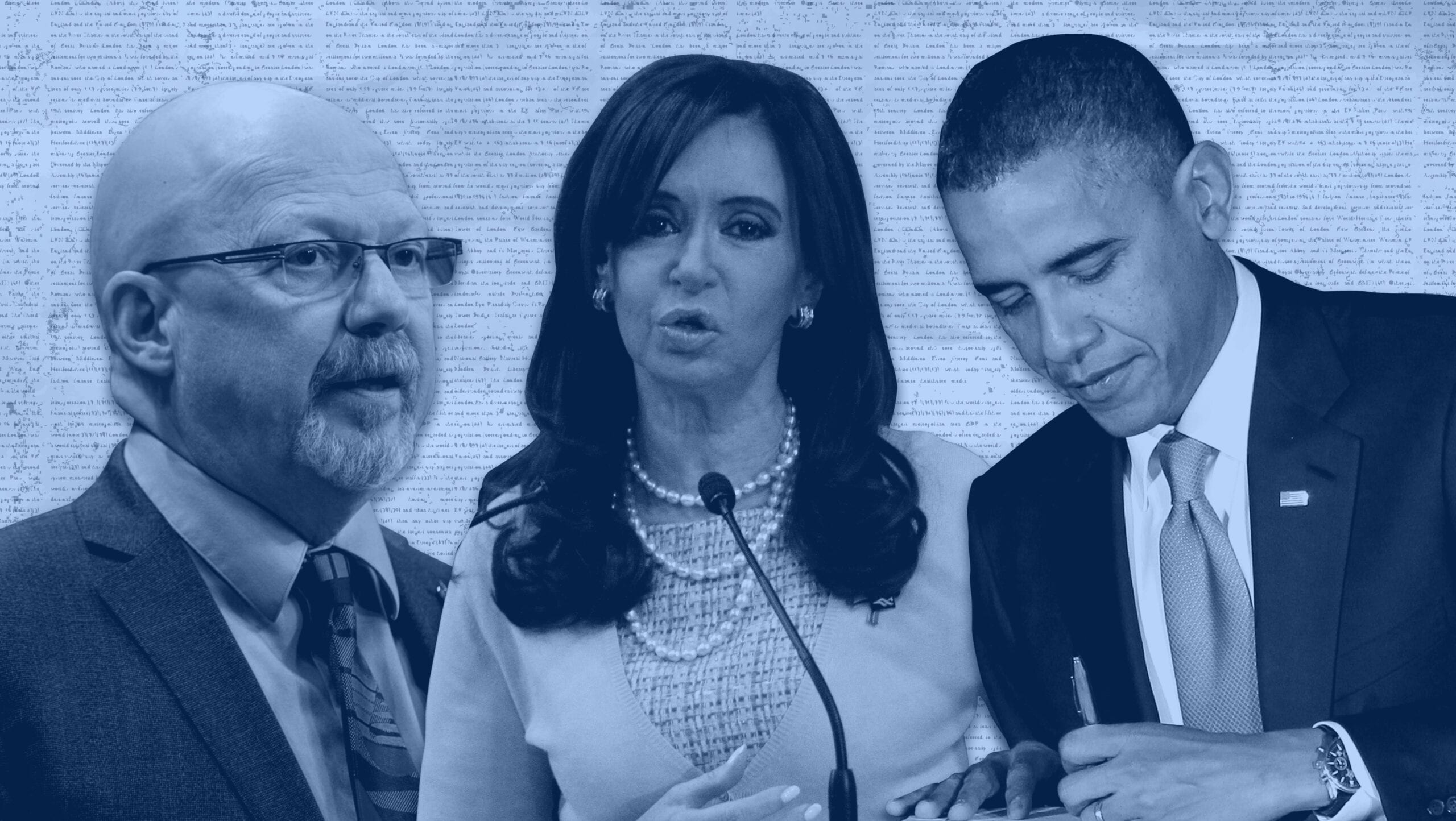This story is part of our Rainbow Rewind 2019 series—looking back at the past year and decade in politics, health, culture and more.
The last decade has seen LGBTQ2 rights advance rapidly in North America and beyond. But queer and trans folks worldwide continue to deal with homophobia, transphobia, discrimination, high levels of incarceration and violence on an institutional level.
From efforts to legalize gay marriage worldwide, to the complicated legacy of conversion therapy to the ongoing battle for trans rights in Canada, here’s a look back at some of the most significant gains and losses in terms of LGBTQ2 rights in the past 10 years.
Efforts to improve trans rights in Canada
When it was first introduced by B.C. NDP MP Randall Garrison in 2011, Bill C-279 sought to add gender identity and expression provisions to both the Criminal Code and the Canadian Human Rights Act (CHRA)—the fourth attempt of its kind to secure protections for trans Canadians. (B.C. NDP MP Bill Siksay tried three times prior to his retirement in 2010.) The bill sought to legally protect trans folks by outlawing discrimination on the basis of gender identity. Bill C-279 passed in the House of Commons but was later gutted in the Senate, with Conservative Senator Don Plett attempting to add several amendments—including one that would exempt places like shelters, change rooms and public bathrooms—effectively limiting trans folks’ ability to use certain public spaces. The so-called “bathroom bill” died in Senate when the 2015 election was called.
About a year later, Justin Trudeau’s Liberals introduced Bill C-16, which passed in June 2017. The bill added “gender identity and expression” to the CHRA and sections of the Criminal Code pertaining to hate speech and sentences for hate crimes.
The new protections were a boon for trans rights. The bill offered trans and gender nonconforming Canadians crucial safeguards such as housing and workplace protections. But anti-trans figures like Meghan Murphy and Jordan Peterson exploited opposition to the bill to expand their reach. By framing their anti-trans rhetoric as defending free speech or cis women’s rights, transphobic public figures continued to spout harmful ideas—while remaining well within the bounds of Bill C-16.
The U.S. Military takes a step forward—and leaps back

“Don’t ask, don’t tell” (DADT), the U.S. military’s one-time official policy on gay, bisexual and lesbian servicepeople, was instituted under the Clinton administration in 1993. While DADT prohibited harassment against closeted queer personnel, it also barred openly queer people from serving. The Don’t Ask, Don’t Tell Repeal Act sought to allow queer personnel to openly serve. It was signed into law in December 2010 and came into full effect the following year.
Despite the repeal, lesbian, bisexual and gay servicepeople continued to face discrimination in the military. Initially, same-sex spouses continued to be denied death benefits, base access and other entitlements their straight counterparts received. And it wasn’t until 2015 that sexual orientation was included as a protected category in the military’s equal opportunity program.
All the while, trans personnel were barred from serving. In June 2016, then-Secretary of Defense Ash Carter announced the end of the ban on trans soldiers, which had been in effect since 1963. The Pentagon eventually agreed to pay for some transition-related costs for trans servicepeople, such as hormones and gender-affirming surgeries.
But the wins were short-lived. A year after the repeal, President Donald Trump revealed via Twitter (how else?) that he was reinstating the ban, and signed a presidential memorandum to that effect in August 2017. Despite several legal challenges, U.S. forces formally commenced a partial ban in April 2019. Today, trans soldiers who joined the military before the latest ban have been allowed to continue to serve, but other folks are forbidden from enlisting.
Homosexuality is decriminalized across the world

Homosexuality currently remains punishable by death in 10 countries and is criminalized in more than 70. But in the past decade, several countries have decriminalized same-sex relations, including the southern African country Lesotho (2010); Mozambique, Palau and Northern Cyprus (2014); India and Trinidad and Tobago (2018) and Botswana (2019), among others. With the decriminalization in India, the proportion of the world’s population living in regions that criminalize homosexuality fell from 40 percent to 23 percent.
However, some countries actually criminalized same-sex relations during this period. Brunei, for example, announced homosexuality would be punishable by the death penalty in 2019. Sultan Hassanal Bolkiah later claimed it wouldn’t be enforced after news of the law sparked international outrage.
Life worsens for LGBTQ folks in Russia
While homosexuality has been legal in Russia since 1993, anti-gay sentiments are pervasive. The country faced backlash in 2013 when it passed a law banning “propaganda of non-traditional sexual relations” under the guise of “protecting children.” The definition of propaganda remains broad—people have been arrested for everything from holding a sign with a pro-LGBTQ slogan, to creating online support groups for young queers in the country. Many LGBTQ folks have fled Russia in the face of mounting vigilante attacks.
Over the past 10 years, the country has consistently made headlines with bizarre anti-gay stories. In 2015, for example, the country created a “flag for straights” to combat “gay fever.” In the same year, it came to light that the Russian version of Siri refused to acknowledge homosexuality. When asked, the virtual assistant would simply respond: “I will pretend I didn’t hear that.” (Apple later claimed this was due to a “bug.”)
The most horrifying news stories were those that emerged out of Chechnya, in southwestern Russia, beginning in 2017. That year, police rounded up more than 100 men under the suspicion of being gay. Many were tortured, forced to give up the names of other queer men; some were killed, while others were released to their families who were instructed to kill their suspected gay family member. Amin Dzhabrailov, a survivor who spoke with Xtra earlier this year, explained, “They make sure we’re hurt. They try to kill everything about us, even our soul.”
Protests erupted internationally, but a second “gay purge” occurred in December 2018. Reports estimate that about 40 people, including some trans men and queer women, were detained, while two were killed.
Same-sex marriage makes gains around the world

Prior to 2010, only seven countries worldwide had legalized gay marriage. That changed in May of that year, when then-Portuguese President Aníbal Cavaco Silva, signed a same-sex marriage bill into law. The following month, Iceland did the same, allowing former Prime Minister Jóhanna Sigurðardóttir to become the first world leader to enter into a same-sex marriage. Over the next decade, many countries followed suit, including Argentina (the first country in South America in 2010); Denmark (2012); Uruguay, New Zealand, France, Brazil, England and Wales (2013), Scotland and Luxembourg (2014); Greenland, the United States, Ireland and Puerto Rico (2015); Finland, Germany, Malta and Australia (2017); Colombia (2016); and Austria, Taiwan and Ecuador (2019), among others.
Other regions also moved toward legalization. Same-sex civil unions are legal in Mexico, for example.
While gay marriage is one metric by which to judge LGBTQ2 rights, it’s worth noting that many of the countries that passed legislation in the last decade still do not legally recognize changes to gender identity.
The complicated evolution of conversion therapy in Canada
Activists and survivors have begun to speak openly about the continued prevalence of conversion therapy in the latter half of the decade. Increased awareness has led many to call for outright bans. In Canada, a handful of regions have passed laws that restrict conversion therapy: Ontario (2015); Vancouver and Nova Scotia (2018) and Prince Edward Island and Edmonton (2019).
In 2018, a petition calling on the Canadian government to ban the practice federally garnered more than 18,000 signatures. When it was brought before the federal government, however, it flipped the regulatory responsibility back on to the provinces, arguing that it was a healthcare issue. In response, Liberal Senator Serge Joyal introduced Bill S-260 in April 2019, which seeks to amend the Criminal Code to ban the advertising of conversion therapy in Canada. If Bill S-260 becomes law, accepting compensation for conversion therapy provided to those under the age of 18 will also be forbidden. Those who fail to comply could face up to five years in prison.
While bans are a good first step, critics such as academic Florence Ashley have pointed out that the changing nature of conversion therapy means these laws aren’t completely effective. Increasingly, religious groups use insidious techniques like one-on-one mentorship rather than sending so-called “patients” to conversion camps or formal therapy.

For stories on politics and LGBTQ2 rights, subscribe to Xtra’s newsletter, Xtra Weekly. And if you love queer history, check out Still Fighting: LGBTQ2 Rights at 50.

This story is part of our Rainbow Rewind 2019 series—looking back at the past year and decade in politics, health, culture and more.


 Why you can trust Xtra
Why you can trust Xtra


